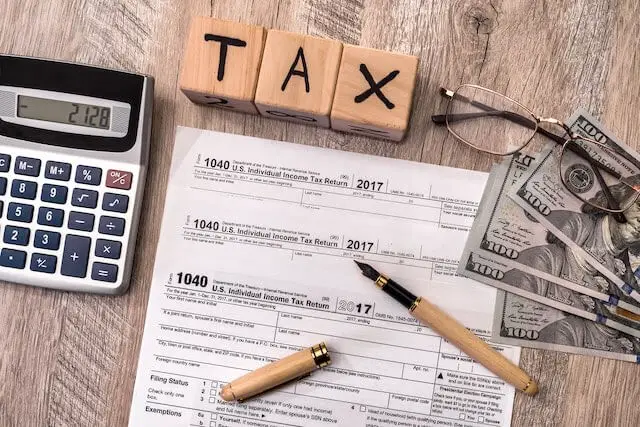You’re not alone if you’re a federal retiree dreaming of sun-drenched beaches, exotic locales, or quaint villages abroad. Retiring overseas can offer new adventures, a lower cost of living, and a fresh cultural perspective. However, before you make the move, it’s crucial to understand the implications on your federal pension, Social Security, taxes, and other key areas.
Would Your Federal Pension Change?
The good news is that your pension amount will not change, and you will be eligible to receive benefits. The exception is if you live in a “Blocked Country,” meaning that the US has sanctions against a particular country. So, if you reside there, you cannot receive your pension. This is a list of the current US sanctions.
Direct Deposit seems only available to US banks since the Direct Deposit Form (SF 1199A) only provided spaces for a US financial institution. To update direct deposit information electronically, go to OPM Retirement Services Online and log in.
The alternative is to receive your pension by check. However, depositing a US Check at a foreign bank would be subject to their acceptance and months of processing time. I would suggest considering using a large US bank that can send wire transfers online.
Also, check to see if your credit cards or debit cards have foreign transaction fees. Most cards do, and the fee is typically around 3%.
Understanding Your Social Security Benefits as an Expat Retiree
Living outside the U.S. rarely impacts Social Security benefit eligibility for U.S. citizens, but verifying the Social Security Administration’s rules for expats is crucial. These rules may influence payment delivery methods, potential tax withholding depending on your country of residence, and reporting requirements to maintain your benefit eligibility.
There are two exceptions. If you will be residing in Cuba or North Korea, your payments will be withheld until you move to a different country. If you are not a US Citizen, you will not be eligible for payments for the time you reside there.
You want to review the sanction program list above for up-to-date information. You can also use SSA’s Payment Abroad Screening Tool to see if your benefit will continue.
How to Receive Social Security Benefits While Living Abroad
The best way to receive your benefit is with direct deposit. You can use a US based bank for that purpose. However, if you reside in a country that has international direct deposit agreement with the Social Security Administration, they can send your social security payment there instead. See the full list here.
Navigating Tax Obligations for U.S. Citizens Retiring Abroad
Certain countries may withhold a portion of your Social Security income as taxes, depending on existing tax treaties between that country and the U.S. Even though you live outside the United States, you must file an annual income tax return and pay federal income tax, and the federal tax rates are the same. Working with an accountant with experience with expats will be a great idea.
State taxes will depend on the last state you lived in or your state of residency. If you moved from a tax-free state, you should not be subjected to any state income tax. Key things to keep in mind for state residency are:
- If you have real estate property in that state
- Driver’s License or state ID
- Where you are registered to vote
The Foreign Earned Income Exclusion (FEIE): A Tax Break for Expats
This exclusion allows you to deduct a substantial portion of your foreign-earned income from your U.S. taxable income, potentially saving you thousands of dollars. The exclusion amount is adjusted annually, so it’s crucial to stay updated on the latest figures. To qualify for the FEIE, you’ll need to meet specific residency and income source criteria.
Double Taxation: What It Means for Your Retirement Income
While the U.S. has tax treaties with many countries to prevent double taxation, some situations can arise where you may be taxed on your retirement income in both the United States and your country of residence. Understanding these treaties and working with a tax professional specializing in international taxation is vital to minimizing any potential double taxation on your hard-earned retirement income.
How FATCA (Foreign Account Tax Compliance Act) Influences Your Taxes as an Expat
The Foreign Account Tax Compliance Act (FATCA) was enacted to increase transparency and prevent tax evasion. FATCA requires U.S. expats to report their foreign financial accounts if they exceed certain thresholds. This includes bank accounts, investment accounts, and certain retirement accounts. While FATCA primarily aims to identify hidden assets, even as a retiree, you must comply with these reporting requirements to avoid penalties.
Additional Considerations for Federal Retirees
- Healthcare: Medicare generally does not provide coverage outside the U.S. Review FEHB options for overseas healthcare coverage or consider the healthcare system in your chosen country.
- Cost of Living: Extensively research the cost of living in your desired location as expenses can vary widely.
- Currency Exchange Rates: If your pension is paid in U.S. dollars, keep an eye on currency exchange rates, as fluctuations can impact your spending power.
Decision Time: Is Retiring Overseas Right for You?
Retiring abroad can be an exciting and fulfilling chapter. Here’s how to make an informed decision:
- Consult a Financial Advisor: A specialist in overseas retirement can help you analyze your financial situation and tax implications.
- Visit and Explore: Take extended trips to your potential new home to get a feel for the lifestyle. Consider renting for a year to make sure you enjoy the lifestyle and weather around the year.
- Network with Expats: Connect with other retirees living abroad for invaluable firsthand advice. Many people who decide to move overseas talk about their experience in online forums or discussion groups. They also talk about what they learned about federal benefits, expat tax services, and living in a new country.
Remember, thorough research and careful planning are your best allies in ensuring a smooth and enjoyable retirement abroad!
Which FEHB plan should expats consider? Read our article Which FEHB Plan Has Overseas Coverage? Federal Employee Health Benefit for Expats.
The content is developed from sources believed to be providing accurate information. The information in this material is not intended as tax or legal advice. Please consult legal or tax professionals for specific information regarding your individual situation. The opinions expressed and material provided are for general information and should not be considered a solicitation for the purchase or sale of any security. Securities and advisory services offered through Osaic Wealth, Inc., member FINRA, SIPC. Osaic Wealth is separately owned and other entities and/or marketing names, products or services referenced here are independent of Osaic Wealth. Representatives may not be registered to provide securities and advisory services in all states. Branch address: 10701 Parkridge Blvd, Ste 130, Reston, VA 20191. Branch phone: 571-543-2783.





